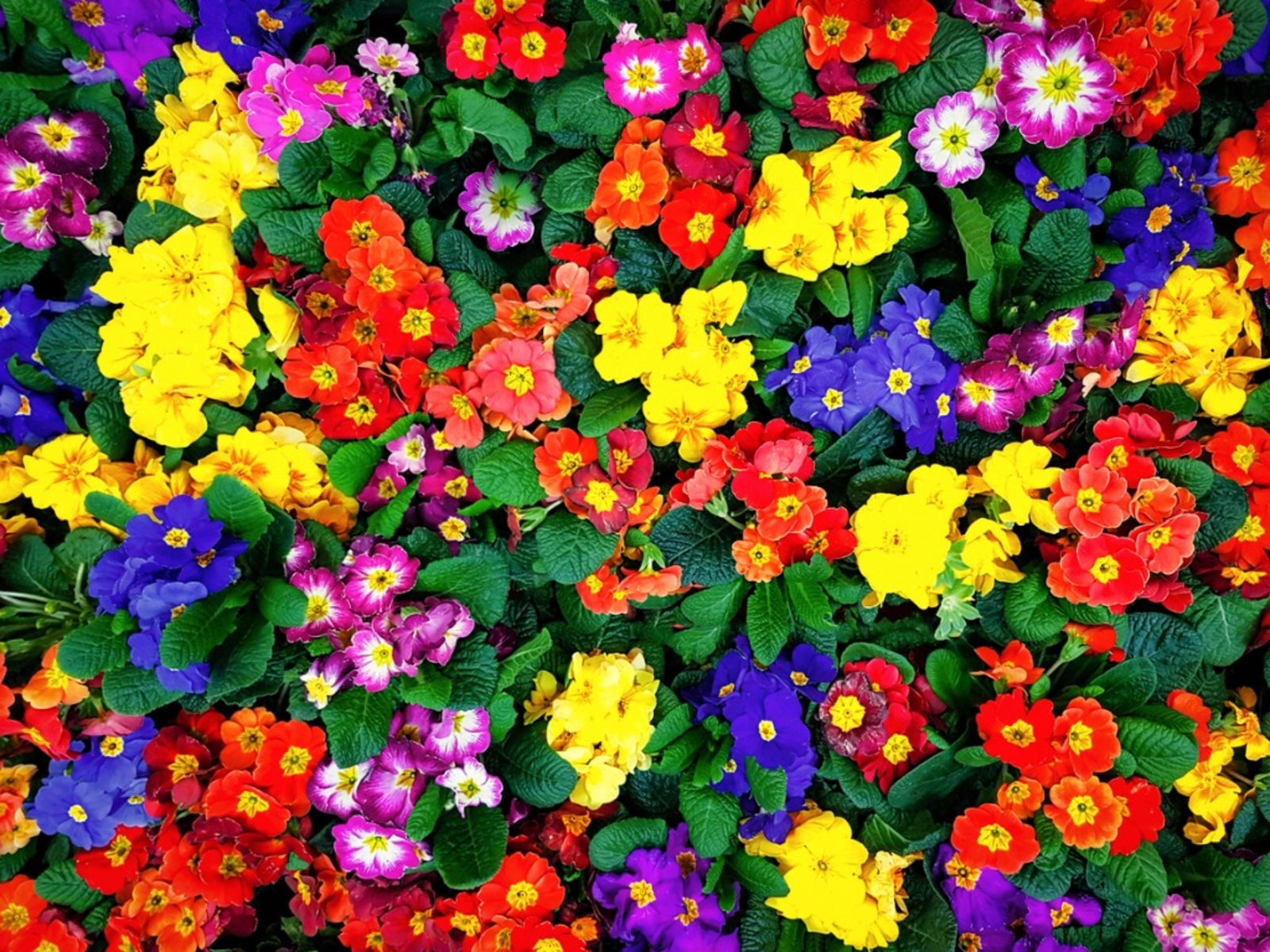Ideas For Rainbow Gardens: Tips For Creating A Rainbow Garden Theme
Learn how to select and arrange plants to create a stunning, multi-hued display. From choosing the right species for each color to optimal planting techniques, we've included everything you need to design a garden that bursts with every shade of the rainbow.


Sign up for the Gardening Know How newsletter today and receive a free copy of our e-book "How to Grow Delicious Tomatoes".
You are now subscribed
Your newsletter sign-up was successful
Color gardens are fun for adults, but they can also be educational for the kids. Creating a rainbow garden theme is an easy process that will help spark interest in these little gardeners. Let's learn more about some rainbow garden designs that you can use for teaching your children their colors and more.
How to Make a Rainbow Color Garden
A color garden is created just like any other garden design. Select rainbow garden plants that grow well in your area and be sure those chosen share similar growing requirements when planted together. You can also grow different types of plants in containers for more flexibility. Help your child pick plant colors that will complement one another as well as the overall design to avoid looking too busy, and choose age appropriate plants too. Include plants with various sizes, shapes, and textures to maintain interest. Have your child create whimsical décor that can be placed throughout the garden as well.
Ideas for Rainbow Gardens
When it comes to color gardens, there are many possibilities. Let your imagination run wild-- taking clues from your child-- and don't be afraid to experiment. After all, isn't that what gardening is all about? If you need a few inspiring ideas to get you started, the following suggestions will help:
Edible Rainbow Garden
Using fruits and veggies from all colors of the rainbow, create an edible garden. For added interest, shape the garden like a rainbow or in a circle with rows or spokes of like colors grouped together. Keep the tallest plants in the center and work your way down. Choose companion plants that will grow well together (i.e., yellow squash growing up or around yellow corn stalks, red radish growing in front or next to red tomatoes).
This list of colored edible plants should help too:
Blue/ Purple: blueberries, eggplant, blackberries, grape
Pink/Red: strawberries, tomatoes, watermelon, radish, beets, raspberries, red pepper
Sign up for the Gardening Know How newsletter today and receive a free copy of our e-book "How to Grow Delicious Tomatoes".
Yellow: squash, banana pepper, sweet corn, rutabaga
White: cauliflower, onion, potato, white corn, parsnips
Green: green beans, asparagus, cabbage, broccoli, zucchini, green pepper, cucumber
Orange: pumpkin, sweet potato, cantaloupe, butternut squash, carrot
Flowering Rainbow Garden
Create a small garden plot filled with colorful flowering plants. Have your child add decorative signs, labeling each color. Older children can also include the plant names.
Here are some good flower choices for each color:
Blue: bellflower, aster, lupine, columbine, baptisia
Pink: astilbe, bleeding heart, fuchsia, foxglove, petunia, impatiens
Red: petunia, cockscomb, geranium, dianthus, rose, snapdragon, tulip
Purple: violets, iris, grape hyacinth, purple coneflower, purple fountain grass
Yellow: sunflower, marigold, coreopsis, chrysanthemum, goldenrod, daffodil
White: sweet alyssum, Shasta daisy, moonflower, candytuft, nicotiana
Green: jack-in-the-pulpit, green coneflower, green calla lily, hellebore
Orange: poppy, nasturtium, marigold, daylily, zinnia, butterfly weed
Rainbow Color Groups
For this one, use a color wheel as your guide to group like colors or color temperatures together. For example, blue, purple, and green plants are considered cool colors while yellow, orange, and red ones are warm or hot. Don't forget about the neutral shades: white, gray, and black. Include all plant types for this design, flowering, edible, and foliage. Here are some plants with colorful foliage:
Rainbow Garden Art
Have your child create colorful displays throughout the garden. Anything from mosaic artwork and steppingstones to colorful planters and signs will add that extra “zip” to the garden.

Nikki Tilley has been gardening for nearly three decades. The former Senior Editor and Archivist of Gardening Know How, Nikki has also authored six gardening books.